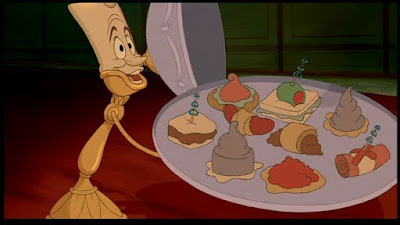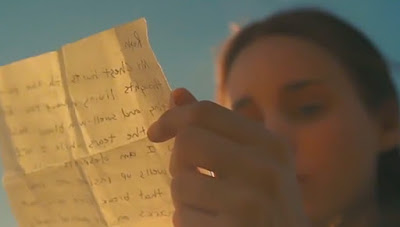Despite finding the first Purge film from a year ago to be terrible, I still had some hope that a sequel could find its footing and deliver everything that the first was so painfully lacking. The problem with the first film is that its own concept raised my expectations, an idea that on paper sounded like it could be fascinating if done correctly. Right off the bat my mind was racing with thoughts regarding why the society I occupy would want or need such a day, as the human psyche and its confounding thirst for bloodshed are things that I cannot understand. I gave the vision of the unknown James DeMonaco far too much credit, expecting him to take a detailed approach to studying the troubling nature of an annual purge and why as a society we cannot strive for a crime free, peaceful world. I mean, its great that crime is down the rest of the year and the economy is thriving, but is it ever a good time to allow atrocities like rape and murder happen to innocent people?
I sat down last year, expecting a film full of chaos and murder on the surface, sure, but I had hoped for some rich subtext, some meaning to the message of the film. Instead I got 90 minutes of Ethan Hawke walking around in the dark bumping into things while a Patrick Bateman impersonator attempted to break through their oddly ineffective security system. A brilliant and unique concept wasted on one home, one family, with zero substance to absorb from the experience.
A year later and it is time again for the annual purge, and with it comes the possibility that DeMonaco caught wind of the negative feedback that plagued his first effort regarding its limited scope and poor execution. Perhaps the fact that the trailers and advertisements I saw in advance of this viewing showed the devastation of the lawless night taking place out on the streets, following various characters literally navigating the dangers simply trying to survive each minute as it ticks away before order is restored, meant that the minds behind this film had heard and understood these complains and thus expanded the scope and narrative to their full potential. Unfortunately, this sequel proved to be just as big of a failure as the first film. It just took a different path to get there.
What amazed me the most about The Purge: Anarchy is the fact that it is a 90 minute film about people in masks wandering the streets with deadly weapons trying to kill everything that moves, and yet it is so excruciatingly boring. I wasn't tired as I screened this last night so the fact that my eyes continued to leave the screen over and over again cannot be blamed on my lack of focus. I was craving an interesting film experience last night, I was so in the mood to be entertained and yet I was left daydreaming about things I could have been doing in that moment that would be more fun, and that list would be plenty long if I were to actually put it together. A lively, fantastically fresh concept yet again dies with bland cardboard characters and meaningless set pieces that feel like an exercise in merely moving from point A to point B rather than achieving anything memorable to grab onto.
"Uh oh, it's those guys! Let's go over here!"
"Now we are over here and those guys look pretty mean too! Let's go down this alley!"
"Uh oh, it's those first guys again, and boy are their masks creepy! Watch out!"
^ This is essentially the entire film until my brain nearly died and I had to take a step away for a moment to regroup.
Also, they present these "bad guys" as if they are creepy and disturbing, but they really aren't. They are just as bland as the gaggle of protagonists that we follow throughout, the film is screaming for some sort of charisma which, to be fair, Frank Grillo comes close to providing as at least he delivers some lines with conviction and manages one or two moments that are capable of putting a smile on your face amongst the otherwise dour and pointless events. Otherwise though, zero percent of the remaining cast do anything to captivate or keep someone invested in the "story".
Eventually the film attempts an on the nose commentary about rich people and their treatment of those they deem lesser, which would be interesting except it is essentially exactly the same as the first film when they trust fund killers follow the homeless man and feel it is necessary that they kill him. We get it, the 99 percent are being slaughtered by the 1 percent because money equals power. Whatever, just finish this shit up so I can eat a fruit roll up in bed while watching a sitcom rerun.
Until now, I had hope that this unique concept could bring an excellent film to the screen. Unless it gets rebooted by someone down the road with actual talent, the entire Purge franchise is a shameful waste of something that could have been special. I'm already bored just thinking about a third installment.
1/5














































